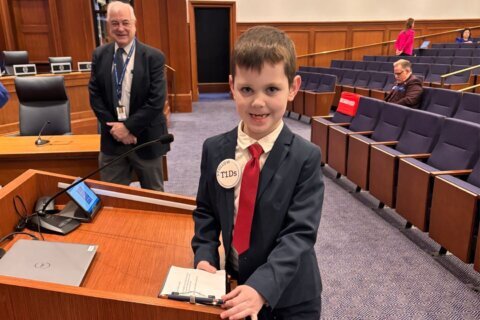Discrimination and affordable housing will be among issues getting attention in Richmond over the next two months with the newly Democratic-led Virginia General Assembly set to start Wednesday.
The Democratic majority sees ratifying the Equal Rights Amendment to the U.S. Constitution as one key way of ensuring protections, even though it remains unclear whether the amendment would become part of the Constitution after Virginia becomes the 38th state to ratify it. The questions surround whether the time period for ratification has expired.
Other proposals include updating Virginia’s hate crime law to cover crimes committed based on disability, gender identity or sexual orientation, adding abuse based on gender identity or sexual orientation to child neglect statutes, adding other protections against discrimination based on sexual orientation or gender identity, and banning discrimination based on hair styles such as braids, locs or twists.
Virginia could also join other jurisdictions in allowing gender nonconforming residents to have “X” listed on their driver’s licenses, and permitting people in the country illegally to get driver privilege cards.
- Minimum wage hike, bag tax among Va. lawmakers’ work, environment and health proposals
- Gun-related bills on the table in Virginia’s General Assembly
- Criminal justice reforms, looser marijuana laws proposed in Va.
- Election controversies, other concerns prompt potential Virginia voting changes in 2020
Lawmakers could formally repeal unconstitutional bans on same-sex marriage and could ban “conversion therapy” for anyone under 18 years old.
The state could also survey large employers annually to understand the wage gap between men and women doing the same jobs, and all state employees could be required to take online training to understand the basics about people in the LGBTQ community.
Housing
A series of proposals would ban discrimination in housing based on sexual orientation or gender, and also ban discrimination based on the source of money a tenant uses to pay rent, such as government assistance.
Proposals addressing zoning law or permitting would ban local governments from discriminating against developments that include low-income housing and require local governments to allow a small “accessory dwelling unit,” such as an English basement, on every single-family home property.
Another proposal would require local governments to allow a duplex or two-family townhouse on any property where a single-family home is allowed.
Local governments could get permission to build rental housing; Fairfax and Arlington counties could be allowed to increase development using inclusionary zoning that builds more affordable units, and Alexandria could join the list of localities where there is an income tax credit for housing choice vouchers.
There could also be a greater push toward transit-oriented development with buildings focused around train or bus stops, and a broader study of statewide housing needs.
Several bills aim to address eviction problems, including through a new, easier to understand tenants’ bill of rights, and changes to how security deposits are used.
Another series of bills would change disclosure rules during home sales.
For people in over-55 independent living communities, Virginia could set up a new ombudsman to look out for any issues.







